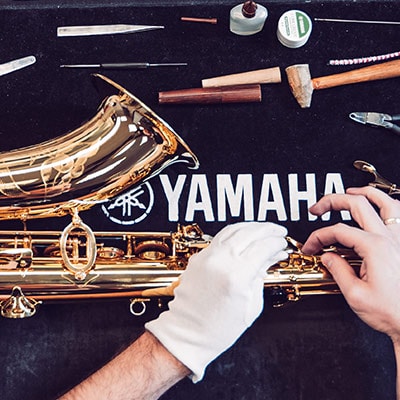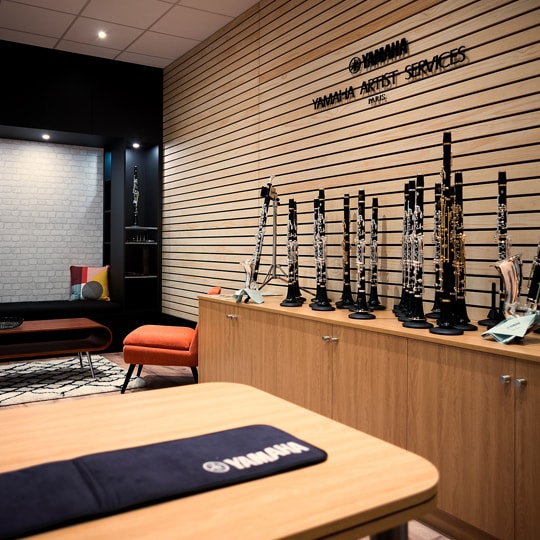These flutes, meticulously hand-adjusted and test-played by experienced artisans, are more than just inexpensive versions of our professional flutes. It is very important for young students to be able to produce beautiful, flute-like tones as quickly and easily as possible. They are the flutes that will help beginners rapidly improve, while offering more advanced players excellent response and tonal qualities.
700/600/500 Series
(YFL-797)
(YFL-787H)
(YFL-677H)
(YFL-517)
Lineup
700/600/500 Series
- All models are available with a B footjoint; add H to the model number when ordering.
B footjoint model comes with a case and a case bag in parentheses.
Material Combination for Professional Flutes
*All models are silver-plated.
Toneholes
Drawn and Curled
Walls are drawn upward from the body material, giving the flute a broad, light sound.
Key Types
Covered (or Plateau) keys are easy to use. The pad cup is covered so it will seal the tonehole any time the key is closed. This is common with beginners or others who may not always press the center of the key.
Many advanced players prefer the open feel of Ring keys for subtle control of their tone. Intermediate and Standard model French system flutes come with key plugs to seal the hole until players have become adept at covering the holes with their fingers.
Covered Keys
Ring (French) Keys
Key Systems
Many players find the Offset G configuration easier to play. Often teachers recommend that beginners start on these flutes, while more and more advanced players are also choosing this natural feeling configuration. Many advanced students and professionals, though, still prefer the traditional In-line formation where all the toneholes are in a straight row.
in-line
Offset G
Split E Mechanism
This key helps give more stability and better centered intonation to the high E.
Footjoints
This key helps give more stability and better centered intonation to the high E.
The B footjoint has an extra key enabling the player to play 1/2 step lower than the lowest note of the C foot. It also affects the sound; B footjoint enables a darker, stronger sound with good projection, while C footjoint has flexible, warmer tone.
B Footjoint
C Footjoint
Features
Headjoint TypeAm
Based on the Handmade Flute's Type A design, which offers a wider expressive range, the Type Am headjoint additionally offers easier response and excellent balance over the instrument's entire range, slightly heavier resistance, and a wide
Straubinger Phoenix™ Pads (700/600 models)
Straubinger Phoenix™ Pads offer the same concept as Straubinger™ Pads on our Handmade Flute, and have more suitable design for 700/600 models. The pads offer softer touch, but also superior response, wide dynamic range and tolerance of environmental changes same as Straubinger™ Pads.
Heavy Wall Thickness (700/600 models)
The thickness of the wall has been increased from 0.38mm to 0.43mm to improve balance for use with the new Type Am headjoint and the 12 Straubinger Phoenix™ Pads.
Pinless Left-hand Key System(YFL-597(H),697(H),797(H) only)
Utilizes the “pinless left-hand key system,” the ideal configuration for handmade flutes. This improves high F-F# key operation, and because there are no pins, maintenance is easier.
Pointed Key Arms
A#, F# and other non-fingered keys feature pointed key arms. Found on handmade flutes, their beautiful designs are inspired by traditional European styling.
Key Design
The keys are hand-assembled and meticulously balanced for a perfect touch. And the key shapes have been so exquisitely designed and ergonomically placed that the flute will almost 'disappear' in your hands. Performances will feel effortlessly natural.
* Specifications are subject to change without notice. The colors and finishes shown may vary from those on the actual products.




















